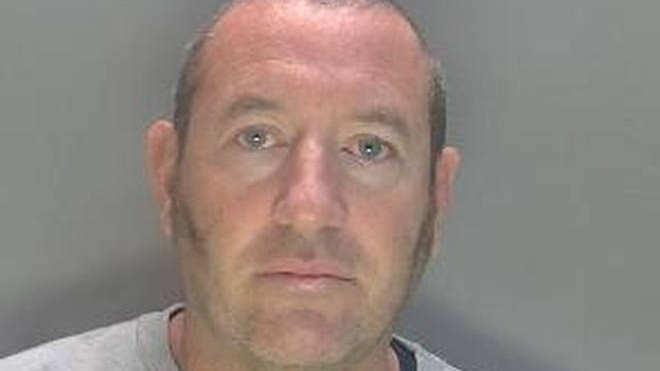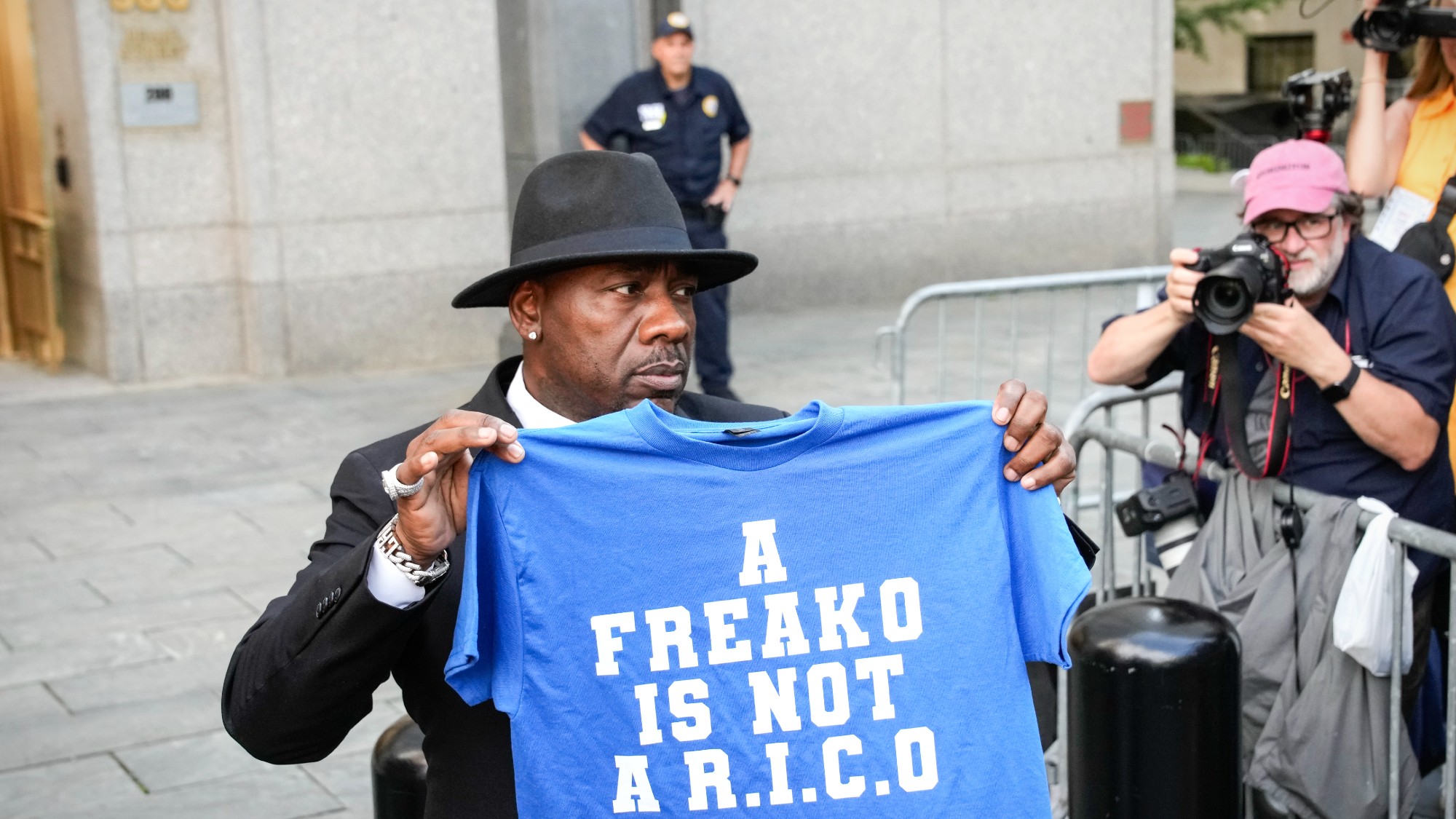How did Met Police officer David Carrick get away with it for so long?
Failure to stop one of Britain’s most prolific rapists linked to ‘toxic culture of misogyny’ at force

A free daily email with the biggest news stories of the day – and the best features from TheWeek.com
You are now subscribed
Your newsletter sign-up was successful
Questions are being asked about how a serving Metropolitan Police officer convicted of multiple sexual offences including 24 rapes was allowed to carry on unchecked for so long despite numerous complaints against him over many years.
It has been revealed that PC David Carrick had pleaded guilty to 49 charges against 12 victims covering a total of 85 separate offences over nearly two decades, making him one of Britain’s most prolific rapists.
Yet while the “details are harrowing”, said The New Statesman’s Rachel Cunliffe, the “really chilling bit is that none of this should have been a surprise”. Allegations were “ignored” and he was allowed into a force “that enabled him to commit these crimes” by “nurturing a toxic working culture”.
The Week
Escape your echo chamber. Get the facts behind the news, plus analysis from multiple perspectives.

Sign up for The Week's Free Newsletters
From our morning news briefing to a weekly Good News Newsletter, get the best of The Week delivered directly to your inbox.
From our morning news briefing to a weekly Good News Newsletter, get the best of The Week delivered directly to your inbox.
What did the papers say?
“The missed opportunities to stop Carrick in his tracks as his police career unfolded are damning,” said the Daily Mail.
The paper reported that “nine times he came to the attention of fellow officers and nine times he was allowed to continue working”, adding that “eight of those times included alleged incidents involving women, but he was never arrested or even suspended from his role as an elite firearms officer guarding embassies and parliamentary buildings”.
Like fellow police officer Wayne Couzens, who confessed to the kidnapping, rape and murder of Sarah Everard in 2021, Carrick “used his position as a police officer to gain the trust of his victims, sometimes flashing his warrant card and telling them they would be ‘safe’ with him”, The Telegraph reported.
The paper said the shocking revelations mark the “first major crisis” for the new Metropolitan Police commissioner, Sir Mark Rowley, who is less than five months into the job.
A free daily email with the biggest news stories of the day – and the best features from TheWeek.com
Issuing what the Daily Mail described as a “grovelling apology”, Rowley said opportunities to remove Carrick from policing had been missed due to weak policies and weak decisions.
But while he vowed to “put in place ruthless systems to squeeze out those who shouldn’t be with us”, he told Good Morning Britain that he could not guarantee that a woman visiting a police station to report a sexual offence would not meet a police officer whose past behaviour was now under review, or who was tolerating similar behaviour in their department.
What next?
The Telegraph said the scale of the task facing Rowley and the Met was “laid bare” on Monday when it emerged that more than 1,000 officers accused of sex offences or domestic abuse were still in service despite currently being under review.
Ultimately, said Byline Times’s Sian Norris, “the Carrick case exposes two urgent, frightening and painful issues”.
“The first is… that the orchard is rotten,” she said. “As well as having been found to be institutionally racist and institutionally corrupt, the police is institutionally misogynistic because its structures are built on pillars of patriarchal power, violence and authority.”
She added that “the second issue is that misogyny in policing reflects misogyny in society”, fostering a “culture of impunity when it comes to men’s violence against women and girls”.
Critics say that the cases of Couzens and Carrick are not isolated incidents but part of a clear pattern within the police that also covers Charing Cross police station officers swapping jokes about gender-based violence and PCs exchanging lurid photos of the murdered sisters Nicola Smallman and Bibaa Henry.
The Independent Office for Police Conduct (IOPC) has previously made recommendations for the force to tackle what it called “toxic masculinity, sexism, and misogyny”, only for fresh revelations to emerge that further undermine trust in the police.
“Police culture matters to us all,” wrote Stephen Otter, a former Met commander and chief constable of Devon and Cornwall Police, in the Financial Times in February last year. “If the public trust the police, they are more likely to co-operate with them. This consent has real conditions attached; when police behave badly, as they did at Charing Cross, co-operation is withdrawn and suspicion grows until the whole fragile structure is re-erected.”
But trust has to be earned, said Anna Birley, a councillor who co-founded the Reclaim These Streets group after Sarah Everard’s murder, in The Independent.
“How do we trust an institution if thousands of decades-old allegations are only just being dealt with properly now?” she said, adding that while it is “right this review is happening, it’s enraging that women have been gaslit by the police for so long.”
Birley said: “We are tired of being told misogyny is being dealt with, when every fresh horror that emerges from the Met shows us that they categorically are not.”
History suggests the “scale and entrenched nature of Scotland Yard’s problems is beyond the reach of individual commissioners”, said Otter. “But permanent change in the Met will require a long-term plan, and one to which successive commissioners are obliged to commit. This means the Home Office and London mayor will have to see it through.
“Many would say I’m naive to even imagine this might happen. I sincerely hope I am not.”
-
 Local elections 2026: where are they and who is expected to win?
Local elections 2026: where are they and who is expected to win?The Explainer Labour is braced for heavy losses and U-turn on postponing some council elections hasn’t helped the party’s prospects
-
 6 of the world’s most accessible destinations
6 of the world’s most accessible destinationsThe Week Recommends Experience all of Berlin, Singapore and Sydney
-
 How the FCC’s ‘equal time’ rule works
How the FCC’s ‘equal time’ rule worksIn the Spotlight The law is at the heart of the Colbert-CBS conflict
-
 Why have homicide rates reportedly plummeted in the last year?
Why have homicide rates reportedly plummeted in the last year?Today’s Big Question There could be more to the story than politics
-
 How the ‘British FBI’ will work
How the ‘British FBI’ will workThe Explainer New National Police Service to focus on fighting terrorism, fraud and organised crime, freeing up local forces to tackle everyday offences
-
 ‘Stakeknife’: MI5’s man inside the IRA
‘Stakeknife’: MI5’s man inside the IRAThe Explainer Freddie Scappaticci, implicated in 14 murders and 15 abductions during the Troubles, ‘probably cost more lives than he saved’, investigation claims
-
 3 officers killed in Pennsylvania shooting
3 officers killed in Pennsylvania shootingSpeed Read Police did not share the identities of the officers or the slain suspect, nor the motive or the focus of the still-active investigation
-
 Christian Brückner: why prime suspect in Madeleine McCann case can refuse Met interview
Christian Brückner: why prime suspect in Madeleine McCann case can refuse Met interviewThe Explainer International letter of request rejected by 49-year-old convicted rapist as he prepares to walk free
-
 Dash: the UK's 'flawed' domestic violence tool
Dash: the UK's 'flawed' domestic violence toolThe Explainer Risk-assessment checklist relied on by police and social services deemed unfit for frontline use
-
 The ethics behind facial recognition vans and policing
The ethics behind facial recognition vans and policingThe Explainer The government is rolling out more live facial recognition technology across England
-
 Combs convicted on 2 of 5 charges, denied bail
Combs convicted on 2 of 5 charges, denied bailSpeed Read Sean 'Diddy' Combs was acquitted of the more serious charges of racketeering and sex trafficking